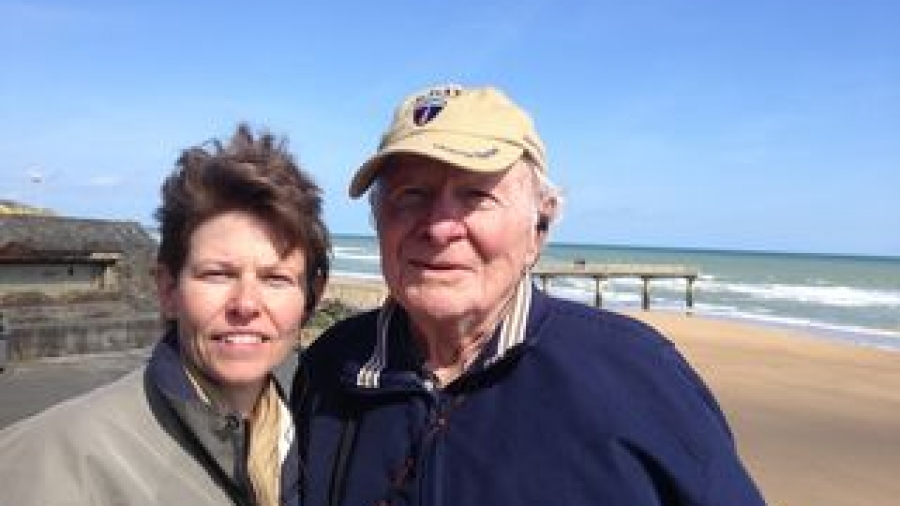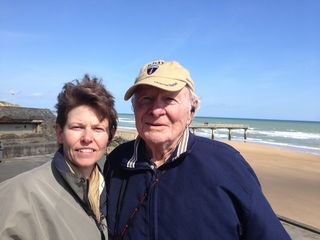This time of year, we remember with gratitude the many joys that our families, friends, clients, and neighbors have brought us, and we especially remember the sacrifices of those who have served our country. The Outreach Team at Maryville University has asked us to share this article with you, so that as attorneys, we might have a heightened understanding regarding the challenges that so many veterans face.
– Article courtesy of Maryville University. See the original article here: https://online.maryville.edu/online-bachelors-degrees/psychology/understanding-a-veteran-with-ptsd/
Servicemen and women oftentimes face unique challenges when leaving active duty and readjusting to civilian life.
As explained by U.S. Veterans Magazine, these challenges include
- discovering ways to re-establish their roles within the family,
- having to find and obtain a civilian job (sometimes for the first time ever, such as when enlisting after graduating from high school),
- and adjusting to a life that involves making their own choices versus being told what to do, how to do it, and when.
However, sometimes soldiers also return home with challenges related to their mental wellbeing as a result of what they’ve witnessed while on active duty. And one of the most common mental challenges is post-traumatic stress disorder (commonly known as PTSD).
PTSD and the Military
The National Institute of Mental Health (NIMH) explains that PTSD is “a disorder that develops in some people who have experienced a shocking, scary, or dangerous event.” In the case of military personnel specifically, these types of events typically occur during times of war when soldiers find themselves face-to-face with not only their own mortality, but that of their fellow comrades as well.
In fact, PTSD is more common for military personnel than for the general population. According to the U.S. Department of Veterans Affairs, approximately 7 to 8 percent of the population will experience PTSD at some time in their lives. Yet, this rate is much higher for military veterans, and the exact amount depends largely on which conflict they endured.
For instance, those serving in operations Iraqi Freedom and Enduring Freedom have somewhere between an 11 and 20 percent chance of developing PTSD. However, it is estimated that approximately 30 percent of Vietnam War veterans developed or will develop this particular mental health condition. So, what is it like for veterans who are living with PTSD?
Living with PTSD
The NIMH says that individuals suffering from PTSD often have flashbacks of the traumatic event, bad dreams, and other frightening thoughts. They may also develop avoidance symptoms whereby they purposely stay away from anything that reminds them of the experience. This can mean avoiding certain places and objects that serve as a reminder of what they’ve experienced.
With PTSD also often comes what the NIMH refers to as arousal and reactivity symptoms. These include being easily startled, feeling on edge, and displaying angry outbursts. Trouble sleeping is also common with PTSD. According to the National Sleep Foundation, this is generally due to the individual feeling like they need to be alert, which is a result of the anxiety that sometimes comes with the nighttime and subsequent darkness, or the nightmares the person seeks to avoid.
Veterans with PTSD may notice cognitive and mood changes as well. For instance, they may find it difficult to remember the entire traumatic event or feel guilt associated with their part in it. Sometimes, they have negative feelings toward themselves or the world at large, or they lose interest in activities they used to enjoy.
These are all trademarks of PTSD and all of these types of responses must be present on some level for a professional to render a diagnosis. But why do some military personnel develop PTSD where others don’t, even if they’ve witnessed the exact same event?
PTSD Risk Factors
Many studies have been conducted on this very topic. One meta-analysis published in PLOS One reports that after reviewing 32 different pieces of research (21 retrospective studies, 4 prospective studies, and 7 cross-sectional studies), there are many factors that stand out as strong predictors of whether or not combat-involved military personnel will develop PTSD.
They include:
- Previous exposure to adverse life events: Being exposed to troubling life experiences (such as sexual abuse or assault) prior to joining the military can increase the risk of PTSD, partially because the event’s negative impact creates other psychological issues.
- Witnessing injury or death: If a servicemember witnesses an injury or death, or discharged his or her weapon during active duty, there is a higher risk of developing PTSD than a servicemember who has not experienced these circumstances.
- Various military characteristics: Military rank and occupation, branch of service, length and number of deployments have all been found to contribute to PTSD risk, because each factor determines how likely it is the soldier will be part of active combat.
- Deployment stressors: Being exposed to excessive temperatures, a lack of privacy in the unit, and worrying about family can all increase a vet’s risk of PTSD.
- Gender: Female veterans develop PTSD more often than their male counterparts, possibly due to reasons associated with being more susceptible to depression, experiencing less cohesion in the military unit, and being more sensitive to threats.
- Race: Minorities have been found to be more susceptible to PTSD than non-minority military personnel. However, it’s unclear if this is because this demographic tends to have more of the other risk factors, or if they are assigned to military roles that see combat more often.
- Level of education: The lower a serviceman or woman’s educational level, the higher the risk of PTSD, potentially due to not having learned effective coping skills or limited access to helpful resources.
PTSD and Post-Deployment Risks
PLOS One’s research also found that PTSD risk can rise after returning home and is often based on various post-deployment factors.
One factor is social support, and their study found that “a positive recovery environment after trauma exposure may serve as a protective factor” for PTSD. In other words, the more the servicemember’s family and friends are there to offer support after duty is complete, the less likely it is that PTSD will develop. That’s because this level of support gives the servicemember the self-reliance and self-security needed to fend off this condition.
Work status after employment is a potential risk factor as well. Specifically, if the veteran comes back and is unemployed, and therefore unable to provide financially for the family unit, this may instigate PTSD.
These types of situations can occur long after the combat ends, but they can still affect the soldier psychologically, making PTSD a threat even after returning home. Knowing all of this, how can you best help a veteran with PTSD?
Helping Veterans with PTSD
The first step involves educating yourself about how someone with PTSD typically reacts. According to the National Center for PTSD, a person with this mental health condition may appear angry, tense, or worried. They may also come across as numb, distant, or detached.
Veterans with PTSD may also be easily irritated, jumpy, or nervous, while being more demanding or protective at the same time. Intimacy issues are not uncommon with PTSD either.
All of these responses can affect family and friends, who may feel hurt, dejected, angry, or sad, especially if they don’t recognize these patterns as being normal reactions to PTSD. So, creating a positive response first requires that you understand these responses enough to know they are a normal way of dealing with this condition.
The second step is to get the veteran the outside help he or she needs. This may involve counseling-type therapy sessions (either one-on-one, group, or both), or even family therapy so the everyone involved can work through the PTSD together. In this case, it helps to find a professional who specializes in the disorder.
If possible, ask local military veterans for their recommendations. Alternatively, you can do an internet search. For instance, Psychology Today offers the ability to do a quick search based on your geographic location. Just enter your city or zip code and all local therapists with this specialty are provided. This site even provides other necessary information to help make a more informed decision as to whether to hire them, such as:
- a brief bio, along with qualifications and credentials
- specialties, issues covered, and treatment approaches
- cost per session and insurance plans accepted
- contact information for setting up an introductory meeting
VA Specific Services
The National Center for PTSD also offers The Guide to VA Mental Health Services for Veterans and Families, which shares the types of treatments that are available through Department of Veterans Affairs (VA) and what happens when you request help.
For instance, for PTSD specifically, there are various medications that can sometimes help when treating depression, anxiety, mood disorders, and sleep disorders related to PTSD. There are also various talk therapies and residential care if long-term, intensive treatment is needed.
Eligibility for these types of services is based on a number of factors, but it generally involves completing active military service in one of the U.S. branches of military, being honorably discharged, or being a National Guard member or Reservist who served in a combat zone. If they determine that you qualify, you will likely be referred to a local VA facility for treatment to begin.
There are nearly 2,000 facilities, and you can use the online locator if you want to find the closest ones to you. Simply enter your location (either your full address or zip code), what type of facility you’re searching for, and how close the facility is (you can search based on a certain mile radius or request the 5, 10, or 25 closest centers to you). The results give you the facility name, its address and phone number, and how many miles it is from your home.
The Vet Center Program is one of the options available to any active or veteran military member who has served in a combat zone or area of hostility, has experienced military sexual trauma, or has provided emergent medical care or mortuary services. Services offered at these facilities include counseling, outreach and education, substance abuse assessment and referral, employment assessment and referral, explanation of VBA benefits, and screening and referral for other issues, such as traumatic brain injury (TBI) and depression.
The more you know about and understand PTSD, the easier it is to see the impact this condition can have on the military veteran individually and the family unit as a whole. Educating yourself about treatment options helps as well, and provides you with the tools you need to help yourself or a loved one overcome this sometimes debilitating condition.








